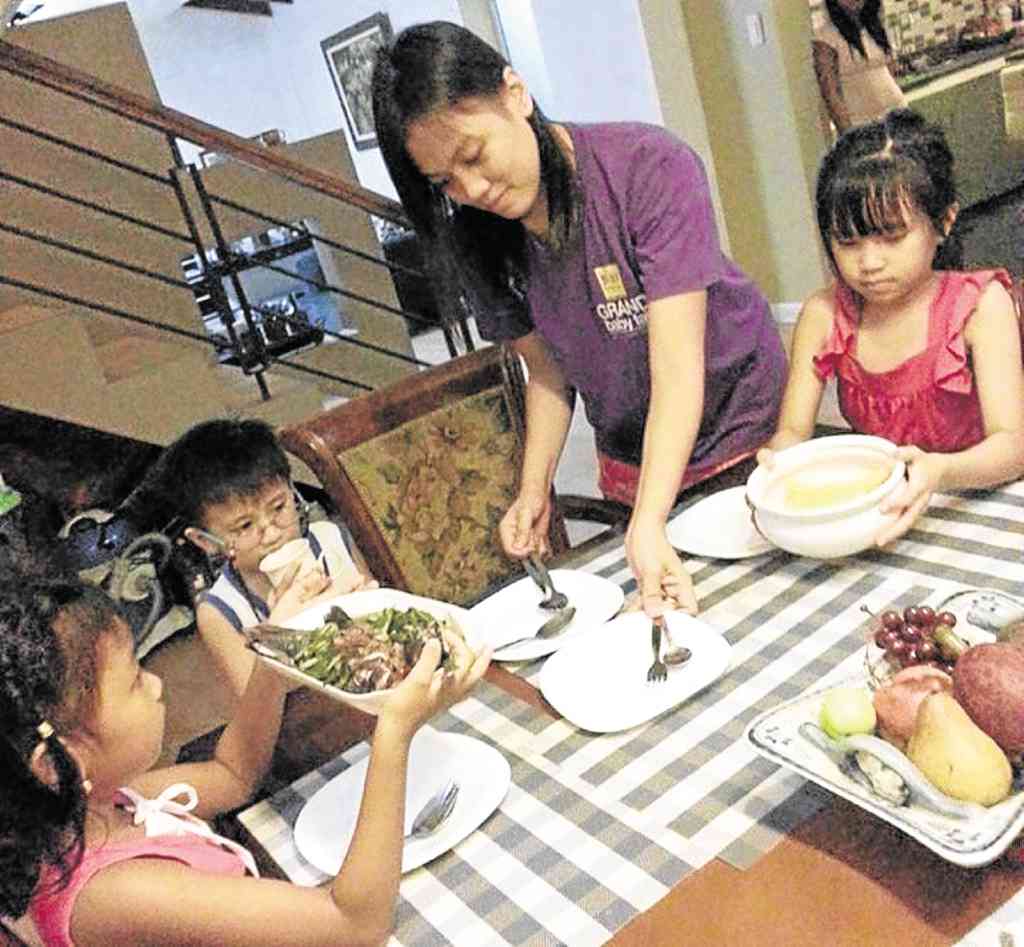All in the family: Bringing up entrepreneurs, patriots
The public image of the entrepreneur has undergone a dramatic change in the recent years.
No longer is he the greedy capitalist of old that exploits resources and people. Instead, he is now recognized as the hardworking, ingenious person that creates jobs and prospers the community through his innovative ways.
We have learned, though it took some time, to recognize that without entrepreneurs, there will be no growth.
Entrepreneurs, like overseas Filipino workers, are regarded as patriots.
“One of the best things one can do for his country is to start a business and help fight poverty,” according to Dr. Paterno Viloria, president of the Small Enterprises Research and Development Foundation (Serdef).
Today, youngsters enroll in entrepreneurship courses.
Parents no longer confine their dreams for their children to such traditionally “proud” professions like medicine, law, engineering, and teaching. Running a business has become a respectable calling that parents dream for their children and young people aspire for themselves.
No place like home
Unknown to some parents, they do not have to wait to enroll their children in entrepreneurship courses to teach them to be enterprising.
It is sometimes said that the best entrepreneurship development institution is the home and that the best business training is family upbringing.
This is because the early, formative years are the most important in a person’s life. This is the time when the family exerts the greatest influence in shaping the adult person that the child will become.
Serdef’s Introduction to Entrepreneurship (published jointly with the UP Institute for Small-Scale Industries) gives a sketch of the family life an entrepreneur experienced as a child: Entrepreneurs were brought up in an atmosphere of self-reliance and freedom.
As a child, the entrepreneur learned to be self-reliant. He was encouraged to feed himself, wash and dress himself, and to cross the streets on his own. He was allowed to buy his own clothes, choose his friends, decide how to spend his money.
He was free to express himself. He was allowed to participate in family discussions and decision-making. He was not sent out from the living room when visitors came and was not hushed when he joined adult conversation.
In other words, the entrepreneur’s parents tend to be tolerant and democratic, the opposite of authoritarian parents who demand unquestioning obedience.
Early craft
Entrepreneurs learned an early craft or trade at home.
They grew up in a home that emphasized the value of hard work. To begin with, they learned to do things for themselves—fix their own rooms, run their own errands, prepare their own breakfast. They helped with household chores. As they grew older, they were taught a craft or a trade like sewing, cooking, gardening and carpentry.
In contrast, homes where a yaya picks up after children and mom and dad equate loving with spoon-feeding are not likely to bring up enterprising children.
Entrepreneurs also had an early exposure to business.
Children learn by example and by doing. Those who have parents and relatives engaged in business are likely to establish business themselves later.
Putting a child to work in business owned by the family or relatives is traditional among Chinese families. As he grows up, the Chinese child is trained to sell, tend shop, pack and deliver goods. Summertime for this child does not mean rest and recreation but apprenticeship.
The more pleasant the exposure to business is, the more likely the youngster will pursue entrepreneurship later. Those whose early impression of entrepreneurship is replete with the struggles, pains, and risks experienced by their parents may take another path in adulthood.
Many entrepreneurs also came from migrant families.
Entrepreneurs often emerge in families not indigenous to the place where they settled. Thus, the Ilocanos have become the entrepreneurs in Samar and the Pampangueños, in Manila.
An explanation for this is that families who migrate often find difficulty landing conventional jobs compared to natives of the locality. Thus, they look for opportunities that the locals do not see. Very often, this is in entrepreneurship.
Other child-raising hints
Additionally, parents are advised to make playtime enterprising, encourage problem-solving, and let children take the lead in family activities.
Play should not be bound by too many rules but allow for creativity to flourish, for imagination to run wild. Problem situations need not be fixed quickly by parental intervention but rather be opportunities for youngsters to find ways to extricate themselves from a fix. And when children assume the leadership role in a project, they begin to understand the importance of preparation, resource allocation, and assessing strengths and weaknesses of individual family members.
Most of all, dads and moms are urged to be enterprising role models. They should behave and think like the entrepreneurs they want their children to be.
Nurturing values in school
What took root at home should be nurtured in school. The self-reliance, work ethic, and craft or trade picked up from parents should be enforced when kids leave home to go to school.
This is the premise for the Building an Enterprising Society (BEST) project being piloted in two pre-schools in Metro Manila.
BEST is the first program in the country to nurture entrepreneurship values among pre- and early-grade school pupils. The values are inculcated through an entrepreneurship-enriched curriculum, lesson plans, school activities, and learning materials.
“BEST is a dream project for us who believe that the earlier enterprising values are instilled, the better they are assimilated,” said Dr. Viloria.
“Children develop heightened entrepreneurial mind sets, leading to more business start-ups.”
(For more information about the Serdef’s BEST program, call up Serdef at Tel. 3555348 or e-mail serdef1976@serdef.org.)


